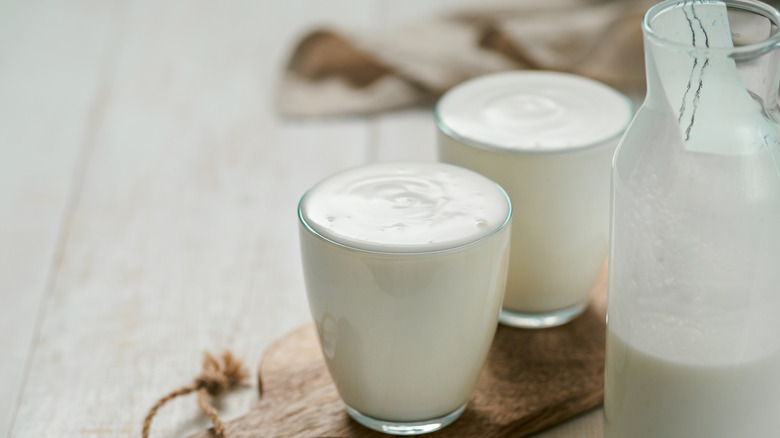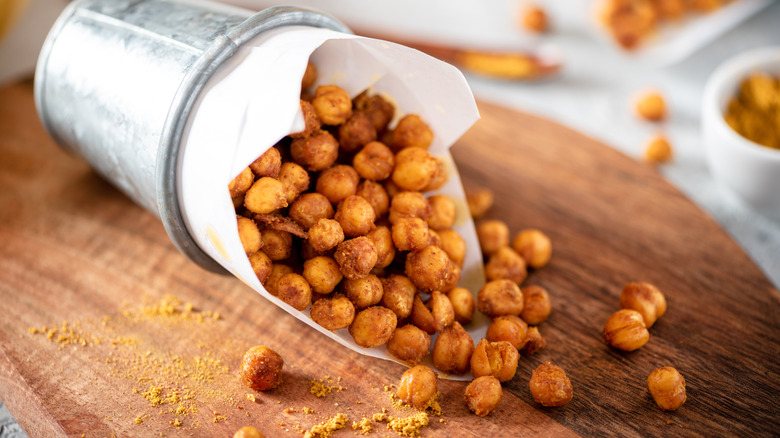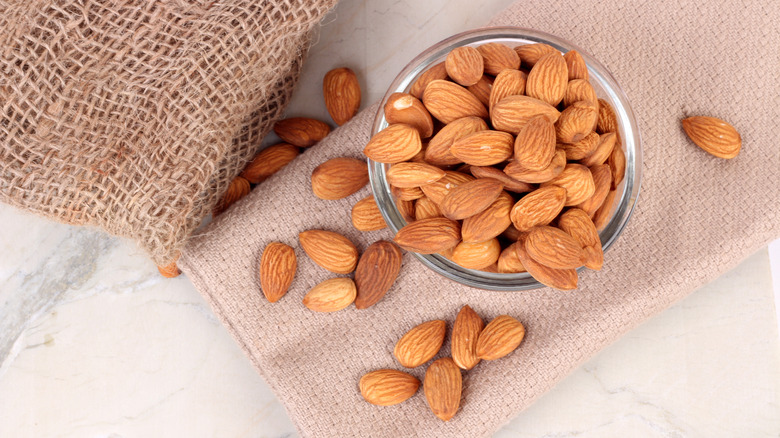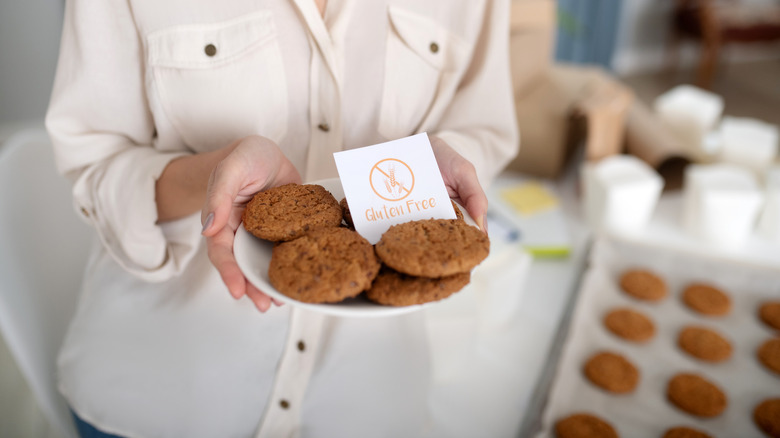Looking for the best healthy snacks to fuel your energy? You’re in luck. The novel coronavirus crisis is changing consumer behavior, increasing the demand for vegan and vegetarian foods. “There is sustained interest in eating more plant protein, while at the same time many people report eating less animal protein,” Ali Webster, Ph.D., RD told Everyday Health.
More and more consumers are going vegan or gluten-free. Some are replacing their go-to snacks with healthier options that support immune function and gut health. Others prefer keto- and paleo-friendly foods like grain-free snack puffs or egg white chips, notes Everyday Health. With the rise in remote work, people are more open to trying new snacks. They are also looking for ways to reduce waste and make more sustainable choices, reports Food Processing.
It’s no secret that snacking can make or break your diet. Some snacks are chock-full of vitamins, minerals, fiber, or protein, while others contain nothing but empty calories and sugar. Your best bet is to opt for whole, unprocessed foods. Make a habit out of reading the labels and reach for snacks that support your health goals. Here are our top picks for 2021!
Snack on probiotic-rich foods for gut health
The human gut boasts about 100 trillion bacteria, reports a 2013 review featured in the journal Therapeutic Advances in Gastroenterology. These microorganisms regulate every system in your body, including digestion, metabolism, and immune function. They also have a major impact on brain health and mental well-being. Many conditions, such as Crohn’s disease, obesity, diabetes, and colorectal cancer, may be associated with imbalances in the gut microbiome, according to the above review.
One way to keep your gut healthy is to snack on foods rich in probiotics. Yogurt, kefir, and probiotic fruit bars are all great choices, says Everyday Health. The Institute of Food Technologists recommends fermented foods, such as Chobani Complete yogurts. You can also snack on pickles or fermented vegetable chips.
Probiotic kefir, for example, isn’t just healthy but low in calories, too. One cup has roughly 140 calories and a whopping 11 grams of protein, according to MyFoodData. You’ll also get 20 grams of grams, 2 grams of fat, and 23% of the daily recommended calcium intake. Just make sure you choose sugar-free varieties. Mix kefir with berries, mashed bananas, chia seeds, or oats for extra flavor and nutrition.
Chickpea snacks are loaded with fiber and protein
Rich in protein, chickpeas can be a good alternative to meat and fish. After all, there’s a reason why they’re used in vegan burgers and other meat substitutes. As Samantha Cassetty, RD told Everyday Health, “Few people eat enough veggies or pulses.” Chickpea chips, bars, and cereals make it easier to get more vegetables in your diet without compromising on flavor.
Depending on the brand, chickpea chips boast around 140 calories, 3 grams of protein, 15 grams of carbs, and 8 grams of fat per serving (1 ounce), reports MyFoodData. This snack can also be a great source of fiber, iron, and calcium, and other key nutrients. The downside is that store-bought chickpea snacks are often high in sodium and may contain artificial flavors.
Looking for a healthier alternative? Try roasted chickpeas. All you need is a can of chickpeas, olive oil, salt, and spices. BBC Good Food suggests using smoked paprika, cumin, cayenne pepper, and coriander for extra flavor, but that’s a matter of personal taste. Simply toss the chickpeas with salt, olive oil, and spices into a bowl, transfer them to a baking tray, and cook for about half an hour or until crunchy.
Sprouted almonds are chock-full of good fats
Touted as one of the best healthy snacks of the year, sprouted almonds are a powerhouse of nutrition (via Forbes). Sprouting reduces the levels of phytic acid, calcium oxalate, and other nutrients in nuts, explains Washington College. As a result, it makes the nutrients in food easier to digest and break down.
While you can buy sprouted almonds from most grocery stores, it’s healthier to germinate them at home. Store-bought versions may contain added sugar, excess sodium, preservatives, and other fillers. The experts at Washington College recommend soaking the almonds in water overnight. Strain them in the morning and then let them dry. Rinse them, let them dry again, and repeat. Eat them immediately or roast them for extra crunchiness.
One ounce of sprouted almonds has 163 calories, 6 grams of protein, 11 grams of fat, and 6 grams of carbs, including 3.5 grams of fiber (per MyFoodData). If you choose to roast them, you can blend them into almond butter and enjoy it as a breakfast spread. You can even turn them into sprouted almond flour or almond milk, says Washington College. Cashews, sunflower seeds, and other raw nuts or seeds can be sprouted, too.
The gluten-free craze is still going strong
The Institute of Food Technologists reports that gluten-free fruit bars, chocolate cookies, and other snacks are still in high demand. But just because something is gluten-free doesn’t mean it’s healthy. Potato chips or French fries, for example, contain no gluten (depending on how they were made), but they can still have large amounts of fat, sugar, and sodium.
The best healthy snacks are minimally processed or contain just one or two ingredients. If you decide to go gluten-free, reach for whole foods. Fruits, vegetables, nuts, legumes, fish, and meat are all gluten-free. You can also snack on rice cakes, quinoa chips, or chickpea puffs. However, if they were made in a factory that also processes wheat, rye, or barley, they may contain traces of gluten. Make sure the label says “gluten-free,” especially if you have Celiac disease or wheat allergy.
Gluten itself isn’t harmful for healthy people, notes Harvard Medical School. Current evidence doesn’t support the purported benefits of going gluten-free. Moreover, just 1% of the population has Celiac disease. However, you might be sensitive to gluten if you experience bloating, rashes, or indigestion after eating foods containing this protein.
All in all, gluten-free foods are more or less healthy, depending on the ingredients used. Processed gluten-free snacks are often lower in fiber and higher in sugar or fat than their conventional counterparts, says Harvard Medical School. Plus, they may have lower levels of iron and other nutrients.
Source: Read Full Article





